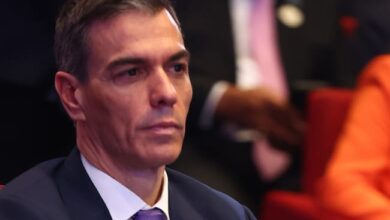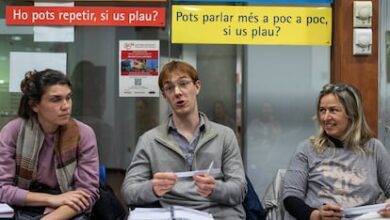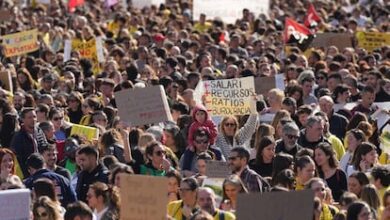
The issue of immigration has become one of the most divisive topics in Spanish society, splitting not only politicians but also the Catholic community. In recent months, disagreements between supporters of strict measures and those advocating for integration and support of migrants have become especially pronounced.
A new wave of debate was sparked by the decision of the municipal authorities in Jumilla (Murcia), backed by the Partido Popular (PP) and Vox, to ban Muslim prayers in public facilities. This provoked a strong reaction from the Spanish Episcopal Conference (CEE), which defended the Muslim community. In response, Vox leader Santiago Abascal accused some in the church hierarchy of acting out of self-interest and allegedly failing to defend the country’s Christian roots.
Vox and movements close to it continue to insist that mass immigration threatens national identity and security. Their rhetoric often features warnings about the ‘Islamization’ of Spain and calls for tighter controls on foreigners. Politician Alvise Pérez shares these views and proposes radical measures, including the creation of special institutions for foreign criminals.
The Partido Popular, while not endorsing such strong statements, has gradually toughened its stance under far-right pressure. In recent years, the PP has repeatedly agreed to Vox initiatives restricting migrant rights, noticeably reshaping the country’s political landscape.
Non-partisan Catholic organizations are also actively participating in the debate. For example, the NEOS coordination platform, established to defend ‘Christian humanism,’ distributes messages about the social risks associated with an influx of migrants and calls for stricter policies. Movements such as Hazte Oír and CitizenGo campaign against funding NGOs that support migrants and emphasize the threat to women from ‘Islamism.’
However, the official church—especially since the pontificate of Francis—takes a different stand. Catholic leaders stress the importance of hospitality and integration, citing the Catechism and the Social Doctrine of the Church. CEE Secretary César García Magán has repeatedly spoken against equating migration with crime and has supported initiatives to legalize migrants. Hierarchs such as the Archbishop of Madrid, José Cobo, openly oppose xenophobia and the politicization of the migration issue.
At the same time, there is criticism within the church itself: representatives of grassroots Christian communities and socially active priests believe the church should play a more prominent role in defending migrants’ rights and combating discrimination. The organization Redes Cristianas warns about the rise of populism that exploits vulnerable people for political gain.
Caritas, one of the largest charitable organizations, refused municipal subsidies in Burgos last year in protest against the exclusion of other NGOs helping migrants, which led to the breakdown of the coalition agreement between the PP and Vox in the city.
The arguments of integration supporters are based on the Catechism and the Church’s Social Doctrine, which emphasize the duty to welcome newcomers and protect their rights. Opponents, however, refer to the state’s right to regulate migration and to require migrants to respect local traditions and laws.
Surveys show that among Catholics, anxiety about migration is higher than in other segments of the population; however, most do not see this as the country’s main issue. According to the latest barometer, 26% of practicing Catholics name migration as one of the top three concerns, while among atheists and agnostics this figure is significantly lower.
Thus, the debates around migration in Spain reflect not only political disagreements, but also a deep internal conflict within the Catholic community. The question of how to reconcile traditional values with the challenges of modern society remains unresolved and continues to shape the country’s public and political life.












